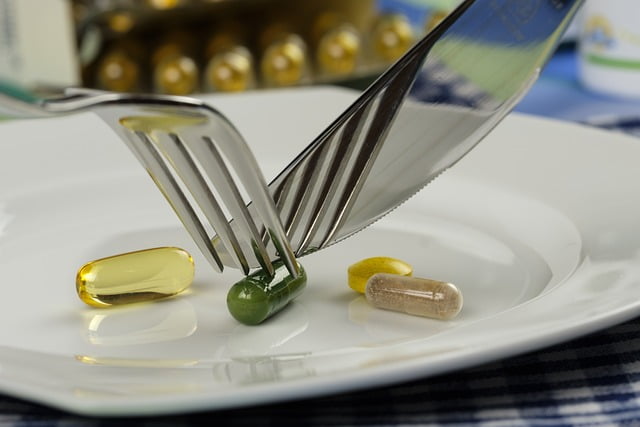
Are you considering adding supplements to your diet? It’s important that you take the necessary steps to ensure that you’re not putting your health at risk. Taking too much of a vitamin or mineral supplement can lead to serious health problems, so it’s important to be informed about the potential risks associated with taking them. This article will discuss how to be careful when adding supplements to your diet. Let’s get to the details.
Table of Contents
Consult Your Doctor Before Taking Supplements
The first and most important step before taking any supplement is to consult your doctor. Your doctor can help you determine which supplements are safe for you to take and which will benefit your health the most. Your doctor may also be able to recommend specific brands or types of supplements that are best suited for your needs.
Besides this, you need to consult your doctor if you are using other medications, have any medical conditions, or are pregnant. Taking the wrong supplement can potentially interact with your medications and cause serious health problems. Ensure to tell your doctor about any dietary supplements you are taking and ask for their advice before making any changes.
Research Potential Side Effects
Before taking any supplement, it’s important to research the potential side effects. Every supplement has a risk of side effects, and some can be serious. For instance, the side effects of taking Sermorelin (a growth hormone supplement) can include headaches, nausea, and dizziness. If you experience any of these symptoms after taking a supplement, stop using the supplement immediately and contact your doctor for further advice.
It’s also important to know any potential interactions between supplements and food or other medications you may be taking. Certain foods could interfere with the absorption of a supplement, while certain medications could interact with it negatively. A good example is St. John’s Wort and blood thinners, which may dangerously interact with each other if taken together.
Know What’s In Your Supplement
Before taking a supplement, make sure you read the label carefully to learn what ingredients it contains. Many supplements contain ingredients that can interact with each other or cause adverse effects if taken in large doses. For instance, taking too much Vitamin A may lead to vitamin toxicity, while large doses of iron can harm people with anemia.
Knowing what’s in your supplement will help ensure that you take the right dosage and do not exceed it. It will also help you avoid any potential interactions with other medications you may be taking. Learn about their benefits and potential risks so you can make an informed decision about whether or not the supplement is right for you.
Follow Appropriate Dosage Guidelines
When taking any supplement, follow the recommended dosage guidelines as closely as possible. For instance, if building strength, take the right dosage to achieve your target. Taking too much of any supplement can lead to serious health problems, so take only what your doctor recommends or what is listed on the label.
Never exceed the recommended dosage, and avoid taking multiple supplements without consulting your doctor first. Taking too many supplements could lead to an overdose or even life-threatening complications. Also, if you feel that a certain dosage isn’t helping, don’t increase it on your own. Consult your doctor to get tailored advice based on your needs. Doing so can help you get the most out of your supplement without putting yourself at risk.
Never Substitute for Food
Many individuals are tempted to replace meals with supplements, but this is not advisable. Supplements are meant to supplement your diet and should never be used as a substitute for food. They may not contain all the essential vitamins and minerals in real food, so relying too heavily on them can be dangerous. Besides, some depend on the food you take to be absorbed and effective.
Generally speaking, you should always get your nutrients from natural sources like whole foods to benefit from the myriad of vitamins and minerals these foods provide. These foods include fruits, vegetables, legumes, whole grains, nuts, and eggs. You can also discuss the same with your doctor to help you determine which natural foods would provide the same benefits as a supplement.
Keep Supplements and Medicines Properly Stored
When adding supplements to your diet, storing them in a cool, dry place is important. Doing so will help ensure that the supplement does not spoil and can be used for its intended purpose. Additionally, keep all medicines away from children as they may not understand the importance of taking only what is recommended or prescribed.
Above all, always talk to your doctor before beginning any supplement regimen. Your doctor can help you determine if a supplement is right for you and what appropriate dosage. They can also help you identify possible interactions between supplements and other medications or foods that could interfere with the supplement’s effectiveness.
Read Reviews and Recommendations
Before taking a supplement, it is important to research the product you’re considering. Reading online reviews and recommendations from other people who have used it can help you decide whether the supplement is reliable.
You can also check with trustworthy sources such as pharmacies, chemists, and health food stores for advice on which supplements are best for your particular needs. This will help you make an informed decision and ensure you get the best supplement for your needs. For instance, if you are looking for a supplement to help with joint health, consider talking to your pharmacist or doctor. They can provide valuable insight into whether the particular supplement is right for you.

Stop If You Experience Unusual Symptoms
Stop using it immediately if you experience any unusual symptoms after taking a supplement. These could include nausea, dizziness, headaches, or other signs of something wrong. Talk to your doctor immediately to discuss any potential interactions between the supplement and other medications you may be taking.
Lastly, always make sure to read the label carefully before taking any supplement. Check for expiration dates, dosages, and other important information about the particular supplement you are considering.
Adding supplements to your diet can be beneficial if done with caution. Always consult with your doctor before making any supplement use decisions, and read the label carefully. Additionally, never replace meals with supplements, and always keep them in a cool, dry place away from children. Finally, if you experience unusual symptoms while using a supplement, stop using it immediately and seek professional guidance. Taking the right precautions can help ensure that your supplements are safe and effective.




